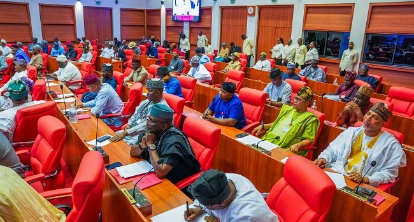The Nigerian Senate has directed its Committee on Communications to investigate the recent surge in data costs and propose solutions to create a more affordable and business-friendly telecommunications sector.
This decision followed a debate on a bill sponsored by Senator Asuquo Ekpenyong (Cross River South), which highlighted the financial burden the price hike has placed on millions of Nigerians, particularly young people who depend on the internet for their livelihoods.
Concerns Over Data Price Hike
The bill noted that data costs have surged by over 200%, making internet access increasingly unaffordable for many Nigerians.
As part of its resolutions, the Senate urged the Federal Ministry of Communications, Innovation, and Digital Economy to engage with telecommunications providers to review pricing structures and ensure that data costs remain fair and affordable.
Factors Behind High Data Costs
The bill identified several key challenges affecting the cost of telecommunications services in Nigeria, including:
- Poor infrastructure and unreliable power supply
- High import duties on ICT equipment
- Multiple taxation and excessive regulatory charges
- Security concerns, leading to increased operational risks and higher insurance costs
- Bureaucratic bottlenecks, slowing innovation and business operations
- High energy costs, with telecom operators relying on diesel due to the unreliable national grid
Steps Towards a Solution
To tackle these challenges, the Senate called on the Federal Government to work closely with telecom providers to review recent data price increases and establish a pricing structure that benefits both consumers and service providers.
Senate Passes Bill on Mandatory Citizen Registration
In a related development, the Senate has also passed a bill for the mandatory registration of citizens, aimed at overhauling Nigeria’s identity management system.
The legislation, sponsored by the Committee on National Identity Card and Population, chaired by Senator Victor Umeh (Anambra Central), seeks to:
- Establish a harmonized and cost-effective identity system
- Improve data accuracy and promote inclusion
- Close existing gaps in Nigeria’s identity database
Once enacted, the law will create a centralized database and a commission responsible for registering citizens and issuing identity cards. The bill now awaits consideration by the House of Representatives before being sent to the President for assent.








Leave a Reply